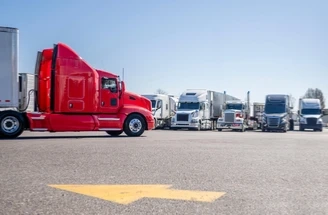Introduction
In the vast landscape of the American transportation industry, owner-operators play a vital role in keeping goods moving across the country. Whether hauling freight over long distances or providing local delivery services, owner-operators are the backbone of commercial trucking. However, with great responsibility comes the need for proper protection. This is where Owner Operator Insurance and Commercial Trucking Insurance come into play.
In this article, we'll delve into the essential aspects of these two types of insurance coverage, shedding light on why they are crucial for owner-operators and the commercial trucking industry.
Owner Operator Insurance
Owner Operator Insurance, also known as trucker's insurance, is designed to provide coverage specifically tailored to the needs of independent truck drivers who own and operate their vehicles. This type of insurance typically includes the following components:
Liability Insurance: Liability coverage is a fundamental component of any owner operator's insurance policy. It provides protection against bodily injury and property damage claims that may arise in the event of an accident where the owner-operator is at fault.Physical Damage Coverage: This part of the insurance policy covers damages to the owner-operator's truck, trailer, or equipment. It can be crucial in ensuring that the operator can repair or replace their equipment in the event of an accident, theft, or vandalism.Cargo Insurance: Cargo insurance is essential for owner-operators involved in transporting goods. It covers damage or loss of the cargo being transported. Ensuring the cargo's safety not only protects the owner-operator's business but also maintains their reputation as a reliable carrier.Bobtail Insurance: Bobtail insurance provides coverage for the owner-operator when their truck is not under dispatch or carrying a load. It protects against accidents that occur during personal use or while traveling between jobs.Non-Trucking Liability Insurance: This coverage, often referred to as NTL or "bobtail" insurance, offers protection when the truck is not hauling a load for the motor carrier. It covers accidents that occur during personal use or while traveling without a load.Commercial Trucking Insurance
Commercial Trucking Insurance, on the other hand, is geared towards motor carriers and trucking companies with multiple drivers and vehicles. While owner operators may be included in these policies when working for motor carriers, the focus is on providing coverage for the entire fleet. Key components of commercial trucking insurance include:
Auto Liability Insurance: Similar to owner operator liability insurance, this component covers bodily injury and property damage claims arising from accidents involving the company's trucks.General Liability Insurance: General liability coverage extends beyond auto-related incidents and provides protection against claims of negligence, personal injury, and property damage that may occur on a company's premises.Workers' Compensation Insurance: This is essential for protecting employees in the event of work-related injuries or illnesses. It covers medical expenses, lost wages, and rehabilitation costs.Trailer Interchange Insurance: This insurance is designed for motor carriers that frequently exchange trailers with other carriers. It ensures that the trailers are adequately covered regardless of whose truck is pulling them.Umbrella Insurance: An umbrella policy offers an additional layer of protection that kicks in when the limits of other insurance policies have been exhausted. It provides extra security against catastrophic events or lawsuits with high settlements.Conclusion
Owner Operator Insurance and Commercial Trucking Insurance are both critical for the smooth functioning of the commercial trucking industry. While owner operators need coverage tailored to their specific needs as independent operators, motor carriers require comprehensive protection for their entire fleet and operations.


